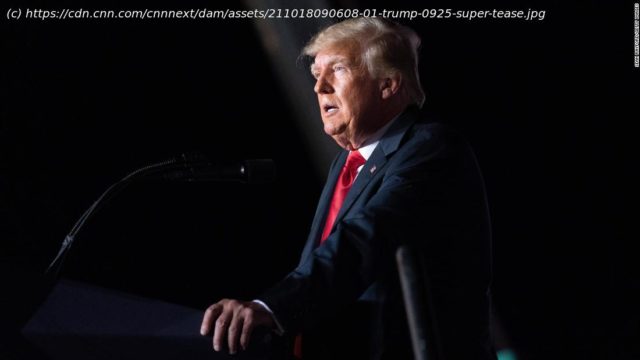The US court system is creating some accountability for hundreds of the people who attended the January 6 rally, which turned into the insurrection at the US Capitol, by charging them with criminal offenses and in some cases sending them to jail.
The political system reveals a much less clear effort to hold accountable the people who instigated the whole event. Democratic lawmakers are set with a Thursday vote to hold former President Donald Trump’s ex-adviser Steve Bannon in criminal contempt of Congress because he won’t comply with a subpoena in their January 6 investigation. Trump is also ignoring Congress by asking the National Archives to squash congressional requests for documents related to the insurrection. What comes after the contempt vote? It is entirely unclear whether that contempt vote will lead to any action by the Justice Department to pursue charges. Related: What is criminal contempt? There would be some irony in a Democratic administration not pursuing criminal contempt charges brought by a Democratic Congress. Look for some clarity when Attorney General Merrick Garland testifies at an oversight hearing in front of the House Judiciary Committee on Thursday. Garland has, on the one hand, promised to keep politics out of the Justice Department. He has, on the other, a duty to uphold the law, including Congress’ right to compel testimony. The root is a lack of respect for Congress. The unwillingness of Trump aides like Dan Scavino and others who are just simpatico with Trump like Bannon is a problem for the fact-finding element of January 6 investigation. That they feel entitled to ignore congressional subpoenas is a much deeper problem — a glitch in the system of checks an balances. What comes next? A slow court fight. Related: Trump’s best legal shot at blocking the release of his January 6 docs A system of checks and balances is being ignored. The January 6 investigation is slowly uncovering, for the umpteenth time of the Trump era, one of the major flaws — frustration might be a better word — with the US system of government. There should be checks and balances between the branches of government, which are meant to share power. Congress legislates. The President executes. The courts settle disputes. They’re interdependent and yet distinct. It’s meant to be an elegant knot. Ticking clock. Congress, which is the branch of government most accountable to voters, faces an election in a little more than a year, which seems like an eternity but is perhaps not nearly enough time to force Trump or his cronies to cooperate using the courts.






